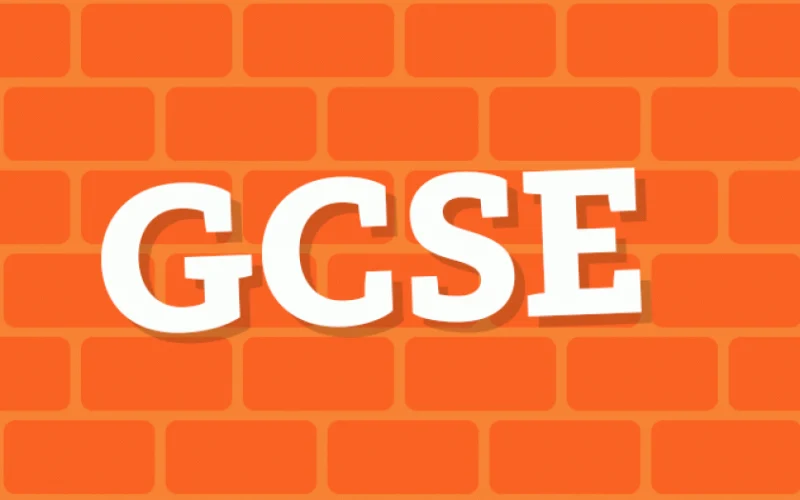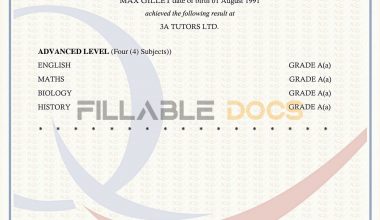GCSEs are a big part of secondary school, and it’s natural to have questions. Maybe you’re wondering exactly how many GCSEs you’ll need to take or what subjects you can choose from.
Exams are a part of school whether you like it or not, and your results can affect your future. The best way to prepare for GCSE exams is by revising, and this guide has helpful tips to help you revise well and get the most out of your hard work.
In this article, we will talk about all sorts of questions, from the big one (how many GCSEs do you take?) to smaller things like choosing the right subjects for your interests.
Table of contents
Are GCSEs Important?
GCSEs (General Certificate of Secondary Education) are a set of exams typically taken by students in the UK at the end of their secondary education, usually around the age of 16. The importance of GCSEs can vary depending on individual circumstances and future goals.
Here are some key points to consider:
- Educational Pathways: GCSEs are crucial in determining a student’s eligibility for further education options. They are often required to enter A-level courses, vocational training programs, and college or sixth-form studies. Higher grades in GCSEs can also open doors to more advanced and specialized subjects.
- University Admissions: While GCSEs are not typically the sole determinant for university admissions, they can influence university offers, especially for competitive courses and universities. Universities may use GCSE grades as part of their selection criteria, alongside other factors like A-level or equivalent qualifications, personal statements, and interviews.
- Employment Opportunities: Some entry-level jobs and apprenticeships might require a minimum of GCSE qualifications. While employers often consider a broader range of skills and experiences, having good GCSE grades can demonstrate a certain level of knowledge and competence.
- Skills and Knowledge: GCSEs are designed to provide a foundational understanding of various subjects. They help students develop essential skills such as critical thinking, problem-solving, communication, and time management. These skills can be valuable in both academic and professional contexts.
- Personal Development: Studying for GCSEs can help students develop a disciplined work ethic, time management skills, and the ability to handle pressure and deadlines. These skills can contribute to personal growth and success in various aspects of life.
- Alternative Pathways: It’s important to note that GCSEs are not the only pathway to success. Alternative routes, such as vocational training, apprenticeships, and other certifications, may not heavily rely on GCSE qualifications.
READ ALSO: Are GCSEs Important for Jobs? How Important Are GCSEs (To Universities, Employers, And Colleges)
How Many GCSEs Can You Take?
There is no maximum for the number of GCSEs or IGCSEs students may take; the minimum is five. At the GCSE level, students often study 9–10 topics; however, you can take more.
Ideally, you must consider your time constraints and your ability to handle the pressure and stress of more studying and exams. As a result, you need to be sure that you are adding more classes for the proper reasons because doing so will likely make you unhappy as you start your studies.
READ ALSO: All GCSE Subjects: Why You Need to Make the Choices You Made
Do I Need GCSEs To Enter University?
Generally, universities do consider GCSE grades when looking at admissions. Although GCSEs are not the only important element of a uni application, they can impact the final decision. For example, Higher grades in GCSEs can demonstrate a strong academic foundation and the ability to succeed in higher education.
Additionally, some university programs may have specific GCSE requirements or prefer applicants with higher grades in particular subjects relevant to their course of study.
However, GCSEs are only one of the factors that universities consider. Universities will also consider your personal statement, references, and extracurricular activities when going through your application.
Also, read: Do Universities Prefer IGCSEs or GCSEs?
How Can I Prepare For GSCE?
If you’re looking to get the best possible results, you must have a clear action plan. You need to know your strengths and weaknesses and the goals you want to achieve.
- Create a realistic study schedule.
- Use GCSE books and online resources – many videos may help you.
- Try different studying techniques – you may find something to change your life! Experiment, try them out; you have time!
- Get help from an online tutor for additional guidance on preparing for the exams, or find a local private tutor who can help you through it all.
- Start studying early – there is no time for procrastination.
Read Also: Top 15 Websites for GCSE Revision with Answers
Methods and Techniques You Can Use To Revise For GCSE Effectively
Before you can start to revise for GCSE exams, you need to know how to revise and, more importantly, how to revise effectively. To do this, you need to determine which revision methods work best for you. This means aligning your revision techniques with your learning style.
Your ‘learning style’ refers to the preferred methods by which you absorb, process, and comprehend information. Understanding your learner type will enable you to customize and adapt your revision strategies to the maximum extent possible.
There are three main types of learning styles: visual, tactile, and auditory. Each learning mode is suited to a series of complementary learning strategies. Revising for your exams using these complementary strategies will help you maintain focus and effectively consolidate your learning.
Let’s take a look at each learning method individually:
Visual Learning
If you are a visual learner, you learn best by seeing. Visual learners process information through visualization, meaning they attain and retain knowledge graphically. Visual learners may find the following revision methods and techniques useful:
- Underline, highlight, and color code notes.
- Create graphs, flowcharts, and mind maps to memorize vital information.
- Create and use flashcards
- Refer to and review texts that contain diagrams and images
- Design storyboards to revise key processes or reconstruct specific events (this is particularly helpful for Science, History, and Geography revision).
Tactile Learning
If you are a tactile learner, you learn best through physical interaction. Tactile learners understand information better through experience and practice, meaning they attain and retain knowledge through the senses. Tactile learners may find the following revision methods and techniques useful:
- Incorporate movement into revision – fidget, chew gum, or even move around the room as you review notes
- Write on large pieces of paper or whiteboards – this will feel more hands-on, requiring you to move as you write down your notes.
- Carry out simple experiments related to specific topics (this is particularly useful for GCSE Biology, Chemistry, and Physics revision)
- Go for live demonstrations related to specific topics – for instance, instead of re-reading a play you are studying for your English Literature exam, go to the theatre and watch it unfold first-hand.
SEE ALSO: The Night Before a GCSE Exam: A Survival Guide in 2024
Auditory Learning
Listening is the greatest way to learn if you are an auditory learner. Auditory learners acquire and retain knowledge orally by processing information through hearing and speaking. The following revising strategies and procedures may be helpful for auditory learners:
- You can listen to podcasts or online lectures relevant to specific subjects and topics
- Memorize key ideas or information mnemonically (use acronyms, rhyme, and song)
- Read notes and textbooks aloud – you could even record yourself doing so and listen to it at a later time
- Teach others – create lesson plans relevant to specific topics and teach your friends and family about them
- Verbalize your answers before writing them down when completing past papers.
- Listen to music while studying.
If you do not fit exclusively into one of these specific learning styles, you might prefer combining revision methods from each category. The critical thing to remember is that there is no right or wrong way to revise; you simply have to determine which methods and techniques work best for you.
How Many GCSEs Do You Need For University?
Like colleges, most universities in the UK require applicants to have a minimum of 5 GCSEs at grade 4 or above, including English and Maths, to be eligible for admission.
However, when it comes to what grades you need to get into university, some universities can require higher marks in specific subjects relevant to the course that you want to study. In addition, they may have specific GCSE requirements for certain programs.
Therefore, it’s always best to check the particular requirements of the universities and courses you are interested in applying to.
RELATED POST: GCSE 2024 Why I need to write a GCSE
Which GCSEs are the most important?
English and maths are the most crucial disciplines because they are needed for most courses, apprenticeships, jobs, and university degrees. You typically need to have completed grades 4 or better in maths and English before you can enroll in them. Therefore, if you can achieve such grades, you will probably have more opportunities.
For students who need to retake one or both of these subjects after the age of 16, certain sixth forms and the majority of colleges offer a variety of Maths and English programs.
You must continue studying Maths and English in addition to your other courses until you are 18 years old or have earned a grade four, regardless of whether you enroll in an apprenticeship, sixth form, or college. If you’re interested in learning more about the GCSE subjects that are required,
FAQs On GCSE
GCSEs (General Certificate of Secondary Education) are a set of academic qualifications typically taken by students in the UK, usually around the ages of 14 to 16.
Students often take various GCSE subjects, with a common range between 8 and 12.
Your chosen subjects should align with your interests, strengths, and future goals. It’s a good idea to consider your career aspirations and seek guidance from teachers, parents, or career advisors.
Conclusion
So there you have it! We hope this article answers all your GCSE questions. Remember, GCSEs are a stepping stone to your future, and with a little planning and the right resources, you can totally deal with them! We’ll be here with more helpful tips and tricks along the way, so stay tuned, and good luck on your academic journey!
References
- educationquizzes.com – What is the Best Way to Revise for GCSE Exams?
- whatuni.com – How to revise for GCSEs
- piacademy.co.uk – How to Prepare for GCSEs? – A Step by Step Guidance






